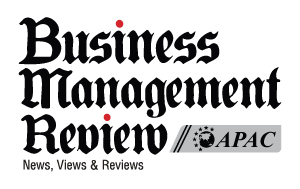Thank you for Subscribing to Business Management Review Weekly Brief
I agree We use cookies on this website to enhance your user experience. By clicking any link on this page you are giving your consent for us to set cookies. More info
How to Identify and Develop High-Impact Team Players
Building and maintaining high-performing teams is a continuous process that requires a strategic and holistic approach, encompassing recruitment, development, and retention strategies.
By
Business Management Review | Friday, December 19, 2025
FREMONT, CA: Building and managing high-performance teams is fundamental to long-term success in any organization. These teams are the engine behind innovation, effective problem-solving, and consistently outstanding results. Achieving this level of performance requires a deliberate and strategic approach, one that focuses on attracting the right talent, nurturing their growth, and creating an environment that motivates them to stay and succeed.
Building high-performance teams begins with strategic recruitment, where defining excellence is key. Organizations must identify the skills, experience, and attributes required for success in each role. Competency frameworks and performance indicators are essential for articulating these expectations. Leveraging data-driven hiring practices, such as AI-powered recruitment tools and analytics, can streamline candidate selection while offering market intelligence to source top talent. Strong employer branding is critical in attracting high-performing professionals. By showcasing organizational values, culture, and success stories through platforms like social media and employee testimonials, companies can position themselves as employers of choice. Equally important is a commitment to diversity and inclusion—teams with varied educational, cultural, and professional backgrounds consistently outperform homogeneous groups. Structured, bias-free evaluations further ensure equitable hiring processes.
Stay ahead of the industry with exclusive feature stories on the top companies, expert insights and the latest news delivered straight to your inbox. Subscribe today.
Recruitment alone is insufficient; nurturing talent into leadership requires continuous investment in development. High-performing employees thrive on learning opportunities through on-the-job training, mentorship programs, coaching, or online courses. Collaboration and trust are critical—leaders should foster a psychologically safe environment where team members can openly share feedback and ideas. Setting SMART (Specific, Measurable, Achievable, Relevant, Time-Bound) goals aligns efforts and ensures accountability while encouraging agile mindsets prepares teams to adapt to change. Agile training sessions and an emphasis on experimentation can further embed this flexibility.
Retaining top talent demands a comprehensive approach that prioritizes engagement and loyalty. Recognizing and rewarding excellence through monetary incentives, promotions, or public acknowledgments strengthens employee morale. Prioritizing employee well-being with flexible work arrangements, mental health support, and wellness programs signals that organizations value their people beyond their roles. Clear pathways for growth, supported by regular conversations about career aspirations and opportunities for internal mobility, enhance long-term commitment. Open communication channels, including one-on-one meetings and anonymous surveys, help identify and address potential frustrations before they escalate. Fostering innovation and sustainability within the workplace also energizes teams and reinforces their loyalty.
High-performing teams also share distinct characteristics that go beyond individual talent. They align under a shared vision, ensuring every member understands the team's purpose. Transparent and constructive communication fosters idea-sharing and conflict resolution, while a culture of accountability ensures responsibilities are met consistently. Adaptability and resilience enable teams to navigate challenges and pivot strategies when needed.
Recruiting, developing, and retaining top talent requires deliberate effort, but the payoff is immense. High-performance teams significantly elevate an organization’s ability to innovate, adapt, and win in competitive landscapes. By proactively creating an engaging, inclusive, and growth-oriented culture, organizations can unlock the full potential of their teams.
More in News






